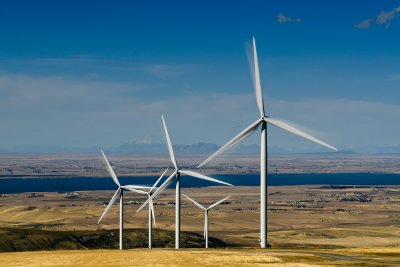
Wind turbines work at the Power County Wind Farm in Power County, Idaho. A Danish company filed suit against the Trump administration for stopping its offshore wind farm project. Photo courtesy of the Department of Energy
Sept. 4 (UPI) — A Danish wind power company filed suit against the President Donald Trump administration Thursday seeking to reverse a stop-work order on its nearly completed Revolution Wind project off the coast of New England.
Orsted and its joint venture partner Skyborn Renewables filed a complaint in the U.S. District Court for the District of Columbia on Thursday, asking it to vacate the order from the U.S. Department of the Interior, saying the administration had no authority to make it.
Orsted was ordered on Aug. 22 to stop construction on Revolution Wind to “address concerns related to the protection of national security interest of the United States.” On Aug. 29, the U.S. Department of Transportation announced it was cutting about $679 million in funding to 12 wind farms, calling the projects “wasteful.”
“The Project has spent billions of dollars in reliance on these valid approvals,” the filing said. “The Stop Work Order is invalid and must be set aside because it was issued without statutory authority, in violation of agency regulations and procedures and the Fifth Amendment’s Due Process Clause, and is arbitrary and capricious.”
The filing noted that the Department of Defense had already OKed the project.
The offshore wind farm is 80% complete and was expected to begin operations next year. It has 65 turbines, would have a production capacity of 704 megawatts and would give off enough power for more than 350,000 homes across Rhode Island and Connecticut.
The filing said that if the company were forced to follow the stop-work order, it would “inflict devastating and irreparable harm” on Revolution Wind. The company has already spent or committed about $5 billion on the project and will incur more than $1 billion in costs if the project closes.
The Bureau of Ocean Energy Management said the wind farm would interfere with the use of U.S. territorial waters. But Orsted called it a pretext, citing Trump’s history of hating wind power.
“The president has apparent hostility towards offshore wind, including based on statements made on the campaign trail,” Orsted’s attorney told the court.